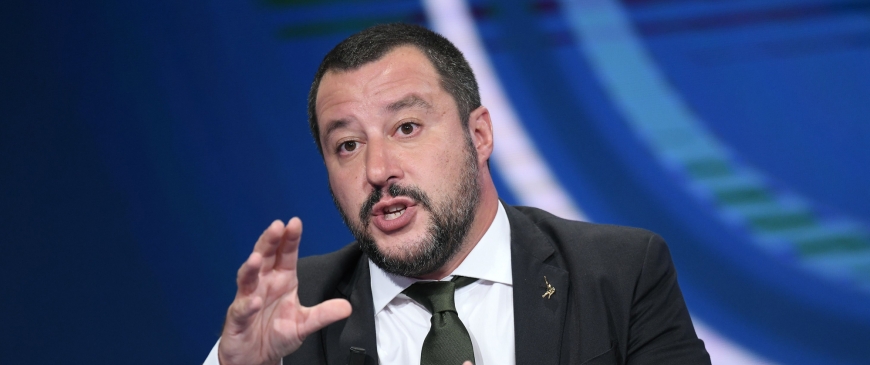
Italy and the EU: There is no good outcome from here
The European Union has taken the unprecedented step of rejecting the Italian budget.
The European Commission request that Italy revise its budget for 2019 marks an unprecedented step. Italy now has three weeks to comply, but the two sides appear to be on a collision course. The Commission will find itself in an increasingly awkward position: it could double down on demands that Italy rewrite its budget and move towards a hefty fine if they refuse, or it could cut Italy’s coalition government some slack—but both choices would have negative consequences.
Italy’s coalition government of the nationalist League and populist Five Star presented a draft budget that increases the budget deficit of the eurozone’s third largest economy to 2.4 per cent of economic output in 2019, from a projected 1.6 per cent this year. This is likely to increase Italy’s public debt, and is a clear breach of EU fiscal rules that mandate how quickly governments reduce their debt.
Italy’s prime minister Giuseppe Conte has described the budget—which includes tax cuts, increased welfare spending and a partial repeal of a pension reform—as “beautiful.” The government insists the increased spending is necessary to boost growth and strengthen the economy. Very few believe this: the risk premium on Italy’s debt has been rising.
It will be difficult for Italy to back down and meet the Commission’s demands. The coalition government has already scaled back its original manifesto promises, which would have inflated the deficit to around 7 per cent of gross domestic product. There may be some scope for small spending cuts or tax rises, but it is very difficult to imagine the government agreeing to a deficit below 2 per cent—which would still represent a breach of the bloc’s fiscal rules.
That leaves the EU with a tricky choice: follow its rules to the letter and punish Italy, or grant Rome latitude in the hope the rising cost of financing its debt forces it to revise its plans.
If the European Commission decides to escalate the confrontation, opening an excessive deficit procedure and threatening to fine Italy, it risks spooking the financial markets further. So far the rise in yields on Italian government bonds has been contained. But an increase in confrontation could spark a selloff. While many hope this could force Italy to back down, it may also prove difficult to contain and have an impact on bonds of other eurozone countries.
Taking a hard line on Rome will also fuel Eurosceptic sentiment in Italy. Italians are already disillusioned with what they see as the EU’s lack of solidarity in the eurozone and migration crises. There is sympathy for breaking the fiscal rules from across the political spectrum—an alternative budget proposal put forward by the opposition Democratic Party envisages a deficit of 2.1 per cent. Italians also argue that the Commission has previously shied away from recommending fines for non-compliance—either for Germany and France, when they broke the fiscal rules in 2002-03, or for Spain and France again in recent years. And the government will also argue that the Commission granted the previous Italian administration more flexibility, allowing it to run a deficit of 2.3 per cent in 2017.
If the Commission takes a hard line, this would reinforce the perception of many Italians that there is one set of rules for France, Germany, and “acceptable” governments—and another for everybody else.So far, the two partners in Italy’s coalition government have been marked by their different attitudes to the EU. While the League is eurosceptic and openly aligns itself with the likes of Hungary’s Prime Minister Victor Orban and France’s Marine le Pen, the Five Star Movement is comparatively pro-European.However, if the Commission takes an increasingly confrontational approach over the budget, any hopes that the Five Star might run on a more pro-European platform in the European Parliament elections of May 2019 would be dashed. Italy would be firmly set in a Eurosceptic direction, and the chances of an Italian exit from the eurozone would increase.
These risks mean the Commission may be tempted to take a softer approach. It could continue to insist on corrections to the budget, while shying away from recommending a fine. Crucially, this could keep an “off-ramp” open for Italy to back down.
However, this approach is also fraught with difficulties. Fiscally conservative eurozone member states like Germany would see it as appeasing Italy’s populist coalition and its financial irresponsibility. They argue that giving Italy leeway on such a fundamental issue would further undermine the eurozone’s rules and the Commission’s authority. And allowing the Five Star and the League to secure a symbolic victory would send Eurosceptic parties across the bloc a signal that they too could extract concessions from Brussels.
For now, the Commission is likely to attempt to steer a middle course, exerting pressure on Italy while avoiding outright confrontation. But if Rome remains defiant, it will eventually have to choose which poisoned chalice to drink from.
Luigi Scazzieri is a research fellow at the Centre for European Reform.
